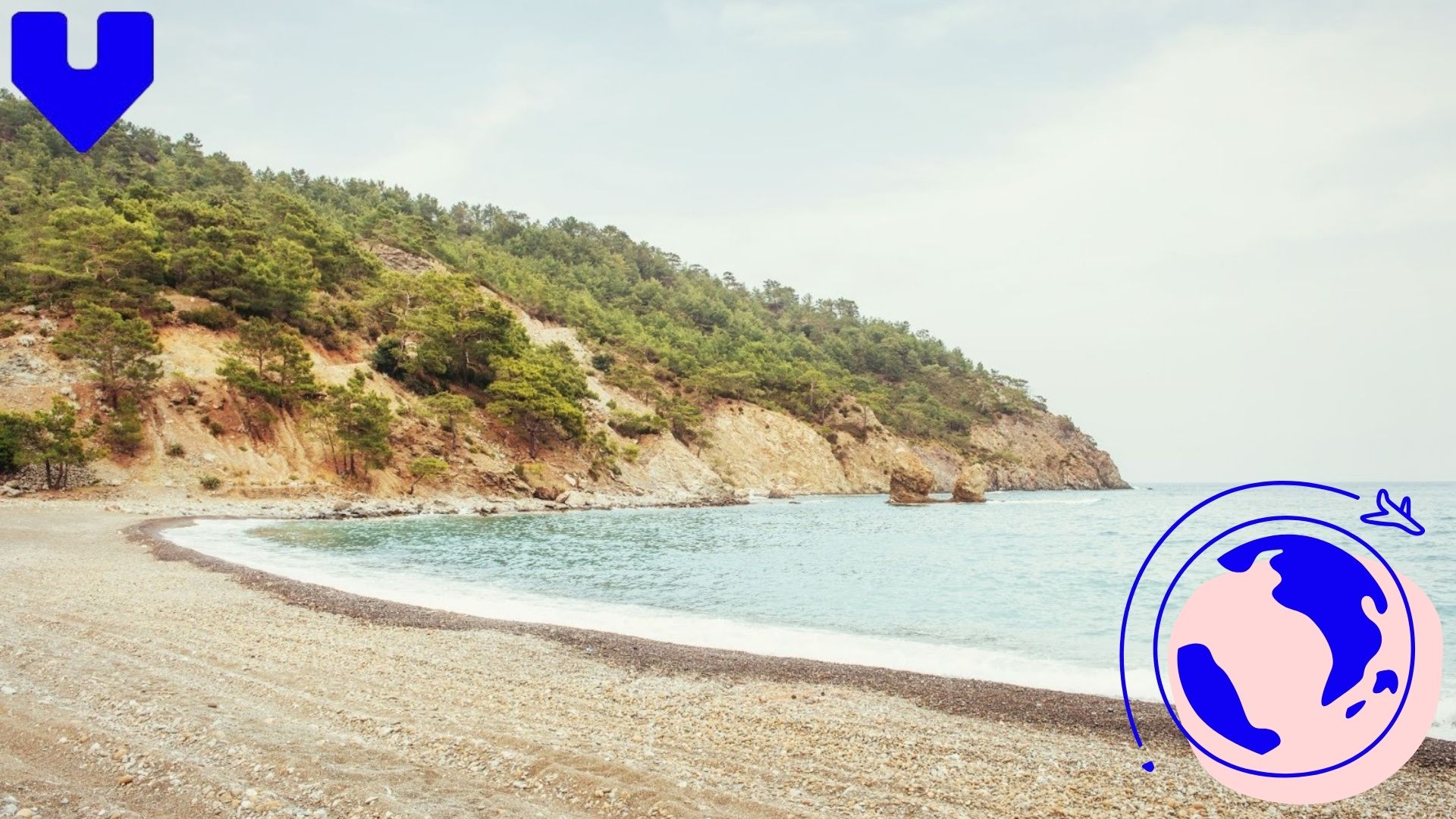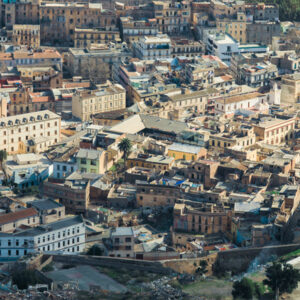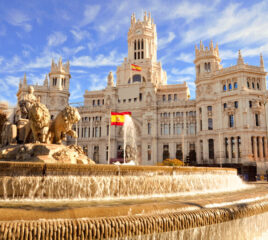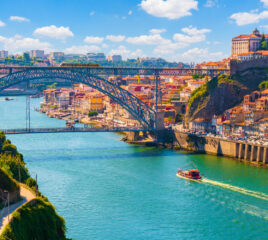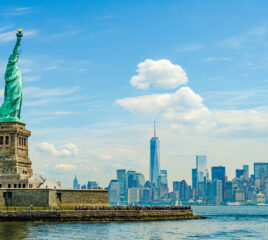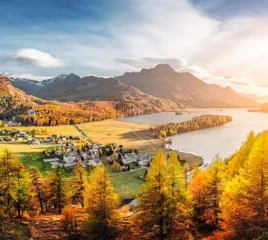Note that iPhone devices from Mainland China aren’t eSIM compatible. Also iPhone devices from Hong Kong and Macao aren’t compatible (except for iPhone 13 Mini, iPhone 12 Mini, iPhone SE 2020 and iPhone XS)
Jijel is one of the Mediterranean’s most overlooked destinations, even though it offers some of the clearest waters, quietest beaches, and richest biodiversity along North Africa’s coastline. Located on Algeria’s northeastern shore, this coastal region brings together blue seas, golden stretches of sand, forested hills, limestone caves, and a culture shaped by Berber roots and centuries of maritime life.
Unlike many popular Mediterranean destinations, Jijel has avoided large-scale tourism. Instead, it has preserved a calm, authentic atmosphere where nature still takes the leading role. Families gather on the beaches, fishermen return with their morning catch, and coastal towns maintain rhythms that reflect local tradition rather than global crowds. For travelers seeking a destination that feels genuine, slow-paced, and full of hidden beauty, Jijel offers a refreshing escape.
Whether you want to explore untouched coastlines, hike through pristine national parks, taste local cuisine, or experience a side of Algeria few international visitors ever reach, this guide takes you through everything you need to know before traveling to Jijel.
The Coastline: Jijel’s Quiet Mediterranean Shore
Jijel’s coastline is one of the region’s brightest highlights. It stretches across secluded coves, sandy beaches, and headlands covered with forests. The scenery is natural and uncluttered, making it ideal for travelers who prefer peaceful seaside experiences over crowded tourist resorts.
A Coastline That Feels Untouched
One of the first things visitors notice is how natural Jijel’s beaches feel. The shoreline is framed by mountains that rise behind the coast, and pine trees often grow close to the sand. The Mediterranean water here ranges from deep blue to turquoise, depending on the light and the depth. Without commercial development dominating the scenery, the beaches maintain an atmosphere that feels relaxed and organic.
Explore Jijel Seamlessly
Travel to Algeria’s hidden beaches with reliable prepaid eSIM data.
Long stretches of sand are perfect for slow coastal walks. Birds circle over the cliffs, small fishing boats rest in quiet bays, and the sea remains clear enough for swimming or snorkeling through much of the year. For travelers looking for scenic landscapes without noise or crowds, this coastline is a major draw.
Beaches Hidden From the Tourist Spotlight
Many of Jijel’s beaches remain known primarily to Algerians, giving international travelers the chance to enjoy areas rarely found in guidebooks.
La Plage Rouge: This beach is named for its slightly reddish sand, which gives it a striking look in the afternoon sun. Calm waters make it perfect for relaxed swimming.
Tassoust Beach: A long stretch of golden sand, Tassoust is popular among local families yet rarely overcrowded. It offers excellent space for picnics, seaside walks, and safe swimming.
Coves Near Ziama Mansouriah: These small coves require short hikes down cliffside paths, but the reward is worth the effort: small pockets of sand surrounded by rocky walls and clear water. The secluded atmosphere makes these coves ideal for travelers who want privacy and natural scenery.
Marine Adventures Along the Coast
Jijel is not only about quiet beaches. The coast is filled with marine life and activities for travelers who enjoy the water beyond swimming.
- Dolphin Sightings: Pods of dolphins often appear near fishing boats and along deeper sections of the coast. Early mornings offer the best chance for sightings.
- Snorkeling and Diving: The rocky coves and underwater landscapes make snorkeling rewarding. Schools of fish, underwater vegetation, and rock formations are common.
- Local Fishing Culture: Travelers can visit harbors or join local fishermen for a hands-on experience. These outings offer insight into Jijel’s deep connection with the sea.
Nature Beyond the Shore: Forests, Mountains, and Caves
While Jijel’s beaches are impressive, the inland landscapes add a deeper dimension to the region’s appeal. Forests, mountain trails, limestone caves, and protected wildlife areas offer travelers countless opportunities for exploration and discovery.
Taza National Park
One of Algeria’s most important natural reserves, Taza National Park combines dense forests, rugged cliffs, and marine ecosystems. It is recognized as a UNESCO biosphere reserve for its ecological value.
What Travelers Can Experience in Taza National Park?
- Trails that lead to viewpoints overlooking both mountains and the sea
- Cedar and oak forests filled with wildflowers and medicinal plants
- A chance to see the endangered Barbary macaque
- Scenic routes are ideal for photography and picnics
Hiking through Taza National Park gives travelers a chance to appreciate Algeria’s biodiversity. The combination of forest air, mountain views, and glimpses of the coastline creates some of the region’s most memorable landscapes.
No Roaming Charges
Enjoy Jijel adventures without roaming costs using prepaid eSIMs.
Exploring Jijel’s Caves
The hills surrounding Jijel hide a network of limestone caves shaped by water and time. These natural formations offer a look into the region’s geological history.
Ghar El-Kebir: The most famous cave in Jijel, Ghar El-Kebir features tall chambers, dramatic stalactites, and cool temperatures. It is an excellent destination during hot summer days, offering a naturally refreshing environment and impressive photo opportunities.
Other smaller caves throughout the region add to Jijel’s landscape diversity and are often connected to local folklore.
Wildlife in Jijel’s Hinterlands
Forests, wetlands, and rocky hills around Jijel support a surprising variety of animals. Travelers may spot jackals, foxes, wild boars, and numerous birds during hikes or drives. Wetlands near the coast host both freshwater and marine-influenced species, continuing traditional fishing practices that have existed for generations.
Cultural Heritage: The Heart and History of Jijel
Beyond its natural beauty, Jijel has a cultural depth shaped by ancient civilizations, coastal traditions, and Berber roots. Travelers who want more than scenery can explore local music, crafts, and historic sites that reflect Jijel’s identity.
Traces of Ancient Civilizations
The region has been inhabited for thousands of years. Roman trade routes and Berber settlements once played active roles here.
Travelers may encounter:
- Remains of old Roman roads
- Fragments of stone foundations
- Sites where Berber fortifications once stood
- Local stories passed down through families
These elements, though subtle, offer valuable context when exploring rural areas.
Berber Traditions Modern Jijel Still Celebrates
Berber cultural influence remains strong in daily life. Markets, festivals, and family homes preserve traditions that go back centuries.
You may notice:
- Polyphonic Berber songs performed during community events
- Handwoven rugs and pottery decorated with symbolic motifs
- Traditional jewelry worn during celebrations
- Berber dialects are spoken in villages alongside Arabic and French
Explore Algeria Freely
Stay connected in Jijel and beyond with flexible eSIM plans.
A Coastal Culture Connected to the Sea
Fishing communities remain vital to Jijel’s identity. Harbors come alive at dawn with returning boats, and markets quickly fill with sardines, shrimp, and octopus. Seasonal festivals often honor the sea or mark important fishing periods.
The mix of cultural pride, maritime heritage, and traditional rhythms adds richness to the travel experience.
Gastronomy: The Flavors of Jijel
Food plays a central role in understanding Jijel. Coastal dishes reflect the Mediterranean environment, while inland recipes connect to Berber and Arab culinary roots.
Seafood Fresh From the Mediterranean
Travelers can expect simple, flavorful dishes focused on freshness:
- Grilled sardines with lemon and salt
- Octopus stews simmered with tomatoes and spices
- Calamari and shrimp served in classic local styles
- Seafood couscous, a coastal adaptation of Algeria’s signature dish
Local Markets and Street Food
Jijel’s markets are full of color and energy. Vendors sell clay-oven bread, honey pastries, figs, olives, pomegranates, and seasonal produce. Street food stalls offer grilled fish sandwiches, skewers, and fried dough snacks.
Eating in Jijel is less about restaurants and more about experiencing daily life through food.
Practical Insights for Travelers
Visiting Jijel is different from visiting major Mediterranean hubs. Its authenticity is part of the charm, but preparation helps make the experience smooth. To avoid common travel challenges, reading Mistakes to Avoid in Algeria can help you plan more confidently and understand local expectations before arriving in Jijel.
Best Time to Visit
- Spring (April–June): Mild temperatures, blooming landscapes, fewer crowds
- Summer (July–August): Lively atmosphere, warm sea, local festivals
- Autumn (September–October): Calm beaches, peak seafood season
- Winter (November–March): Quiet, ideal for hikers and slow travelers
Staying Connected
Many attractions in Jijel take you into rural or natural areas. A Voye Global eSIM for Algeria allows instant data access without hunting for physical SIM cards. This helps with navigation, translation, and staying in touch while exploring remote spots.
If your trip starts in the capital, the Solo Trip to Algiers guide can help you understand the city and plan your route before continuing to Jijel’s coastline.
Transportation
- Shared taxis: Frequent and affordable for local travel
- Buses: Useful for longer routes, though not always on strict schedules
- Car rentals: Best option for exploring coves, mountain roads, and lesser-known beaches
- Road conditions: Generally good, with scenic coastal and mountain drives
Safety, Etiquette, and Comfort
Jijel is widely considered safe and welcoming.
Keep in mind:
- Cash is often preferred in rural areas
- Modest clothing is appreciated in small villages
- Local phrases like “shukran” (thank you) go a long way
- Solo travelers and families will find Jijel approachable and friendly
Conclusion
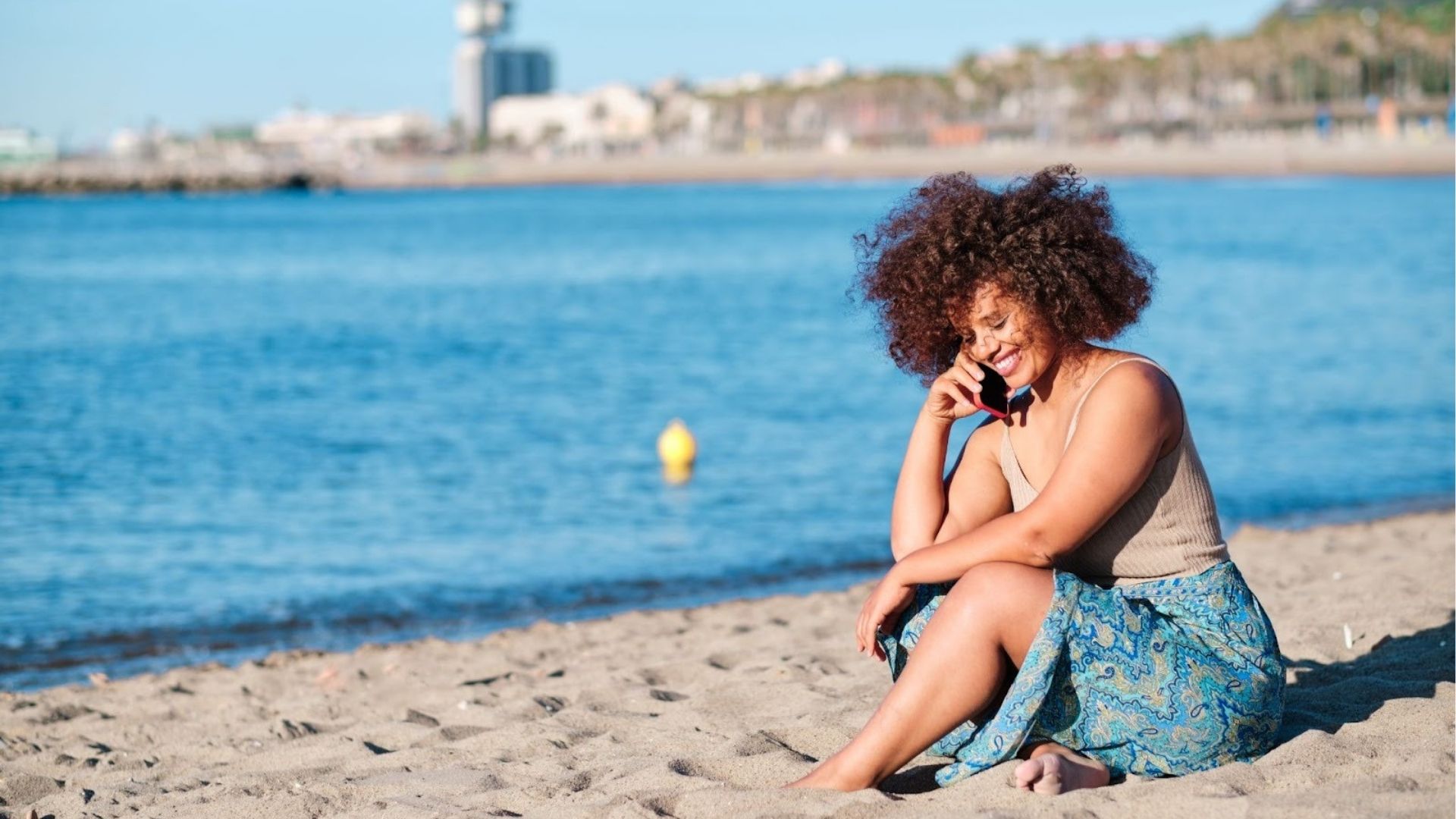
Jijel is one of the Mediterranean’s most authentic destinations. Its quiet beaches, forested mountains, limestone caves, fresh seafood, and deep cultural traditions make it a region worth exploring slowly and thoughtfully. What makes Jijel special is its remarkable preservation despite its beauty. It remains grounded, welcoming, and connected to nature.
For travelers seeking a hidden Mediterranean escape with genuine character, Jijel offers a blend of coastline, culture, cuisine, and nature that leaves a lasting impression. With reliable connectivity through an eSIM for Algeria, thoughtful preparation, and an openness to local experiences, the journey becomes both easy and rewarding. Jijel is not just a place to visit but a destination to experience at its own rhythm.
FAQ
1. Is Jijel safe for tourists?
Yes, Jijel is known as a safe and welcoming region with a calm atmosphere. Basic travel precautions are enough for both families and solo visitors.
2. How do I get to Jijel from Algiers or Constantine?
You can fly into Jijel Ferhat Abbas Airport or travel by bus, shared taxi, or rental car. The drive from Constantine is especially scenic.
3. What are the best beaches to visit in Jijel?
La Plage Rouge, Tassoust Beach, and the coves near Ziama Mansouriah are top picks. Each offers clear water and naturally quiet surroundings.
4. What is the best time of year to visit Jijel?
Spring and autumn provide mild weather and fewer crowds. Summer is lively and great for swimming, while winter is peaceful and cool.
5. Are there hotels suitable for international travelers?
Yes, Jijel has comfortable hotels, seaside lodges, and guesthouses. Options are modest but clean, welcoming, and best booked ahead in summer.

Seamless Mobile Data Everywhere







